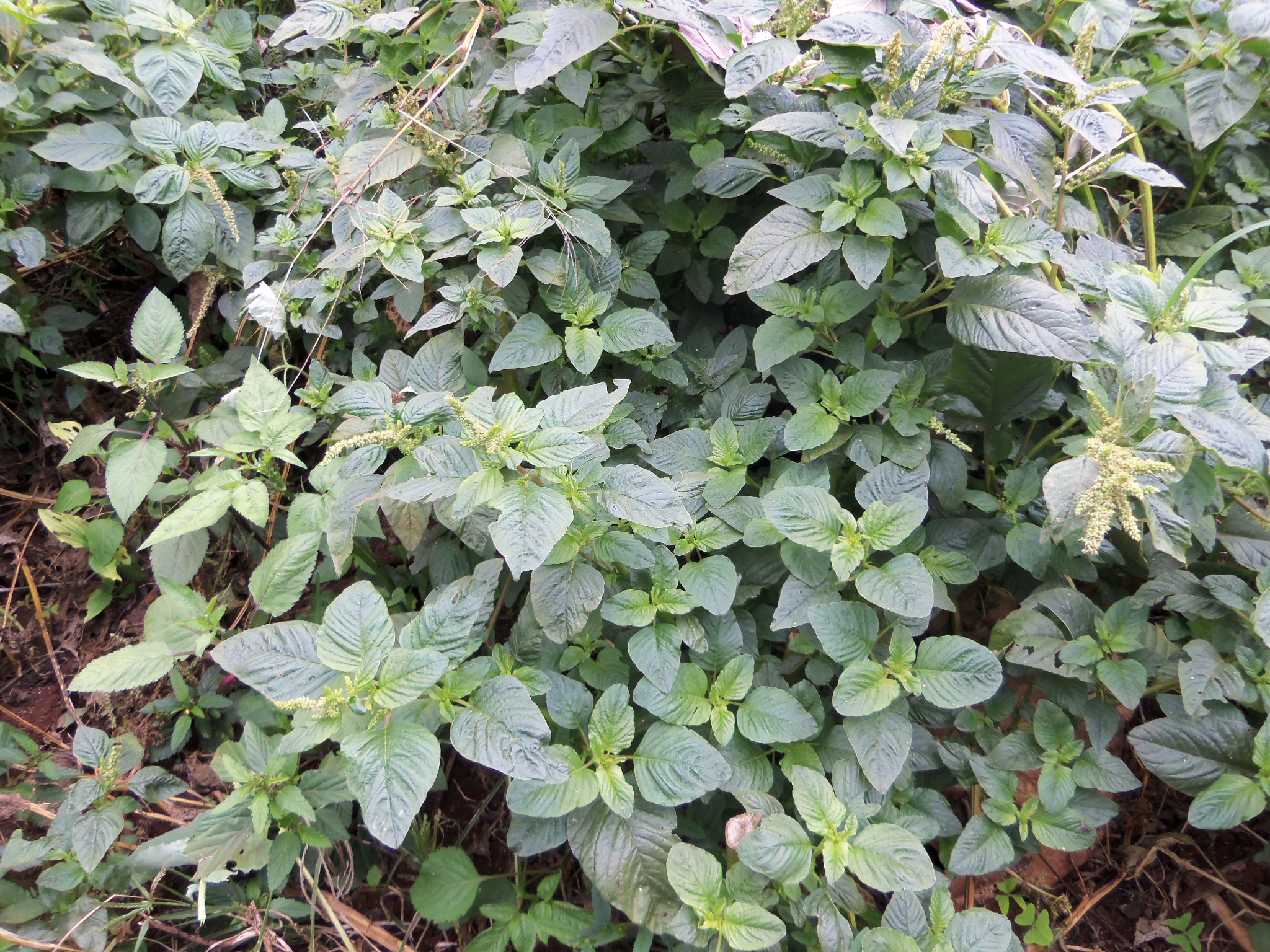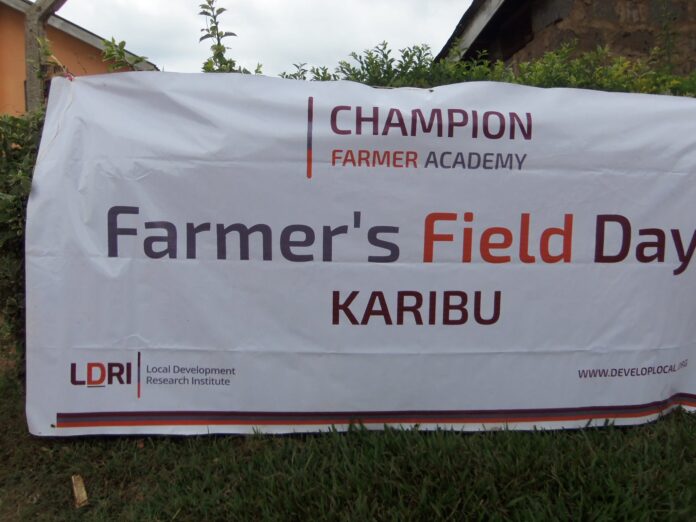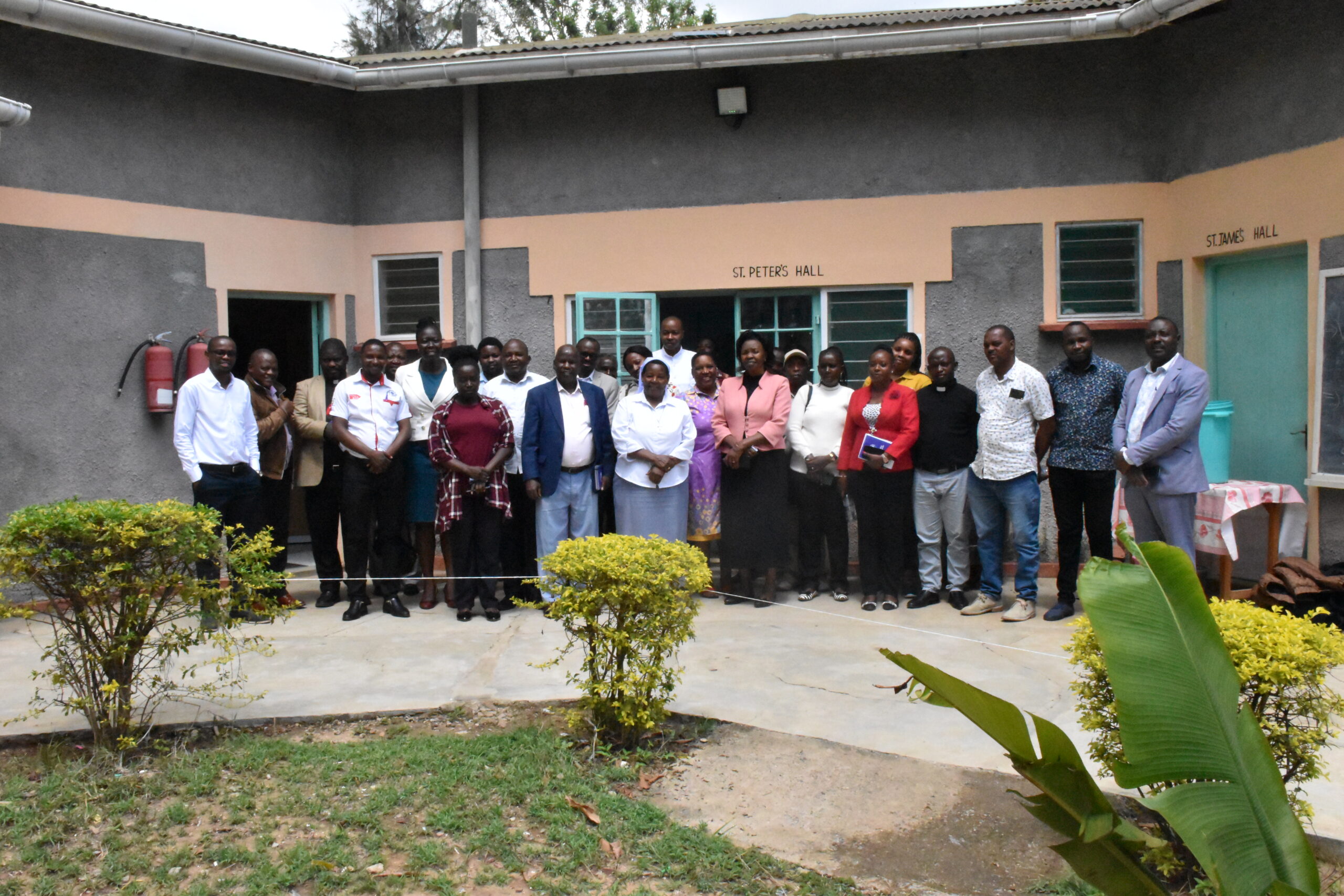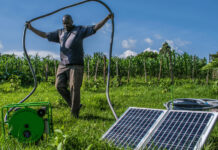By Sharon. W. Kiburi
Kiambu County, Kenya: A recent farmers’ field day in Kiambu County organized by Local Development Research Institute (LDRI) highlighted the importance of adopting ICT technologies through agroecology to boost food security.
These farming technologies are to help improve food security and spur economic growth among farnmers. During the event, farmers lauded how they had benefited from the project which has seen them increase yield, adopt new farming technologies, and increase income.
Some of the technologies the farmers benefit from evolve around Artificial Intelligence (AI) and data analysis in agricultural efficiency.
Jane Wanjiku a middle-aged farmer is one of the beneficiaries of the project she beamed with joy as she narrated to Talkafrica how she benefits from the training on agroecology activities on her farm.
“The training I received enabled our farm yields to grow, hence helping us to make some developments in our homes after sales of the surplus, including putting food on the table for the family and taking children to school and paying fees for my children.”

Further, Ms. Wanjiku said the training has allowed her to train fellow villagers in effective farming methods. “The training around nutrition has been quite helpful. Since I adopted the culture of eating healthier traditional greens as we include fish in my diet, my health has improved significantly,” noted Ms Wanjiku.
Similarly, Benedict Muthoni Mwaura praises the training project, “I learnt a lot about how to be food secure, using the variety sources and feeds that allow for diverse farming, such as poultry farming, fish farming and indigenous vegetables.” Mwaura added that the program has been helpful, especially in knowing what seeds to plant, when, and what type of fertilizers and manure to use.
LDRI which has been instrumental and coordinating this training program for farmers confirms that they achieved this through supporting seed development greenhouses for various vegetables, implementing affordable on-farm fish feed ingredient & production facilities for fish farmers, technology transfer, and knowledge exchange between farmers and innovators.
Speaking during the farmers’ school field day in Kiambu, Amina Zinga, the communication lead at LDRI, said, “This event is part of a collaborative project which is a bilateral cooperation between South Africa and the Kenyan governments, led by LDRI Kenya and Intini Research and consulting South Africa. The project has been running since November 2022, which enables technology and knowledge transfer of agricultural practices for farmers in Kenya and South Africa.”
The project runs under the theme ‘our seed, our feed, and our food’, encouraging farmers to utilize agro-ecology in their seeds, indigenous vegetables, and black soldier fly farming.
The seeds can be replanted and consumed for food; vegetable waste can be used to create manure used on the farm, while the black soldier flies produced protein that can be used to feed the fish.
“Bearing in mind the cost of feeds in an economy already struggling, using waste from the readily available black soldier flies is aiding small-scale farmers a great deal as a protein substitute for the fish,” Stated Joyce Njenga, the lead project manager and a lecturer at the Jomo Kenya University of Agriculture and Food and Technology (JKUAT) specialist in fisheries and Aquaculture.

Ms. Njenga further said that LDRI staff train farmers to capitalize on using black soldier flies available for free in the surrounding wild forest. “The main advantage black soldier fly has is that it is pretty harmless and highly beneficial at the larvae stage that can be used as feed for the fish, also research from the International Centre of Insect Physiology and Ecology ( ICIPE) shows that insect is environmentally friendly” said Njenga.
Black soldier flies insect goes through the four stages of growth, namely the egg, larva, pupa, and adult, with a life circle of forty-five days.
“The farmer needs to provide a love cage to see the insect’s life circle stages. Beyond feeding the black soldier fly with waste from one’s Kitchen or hotel waste. The farmer must provide an attractor (A sweet citric or fermenting smell) which provides an odour to enable the female black soldier to lay eggs,” elaborated Ms. Njenga.
In Kenya’s market-dedicated forces, the cost of one Kilogram of black soldier flies (scientific name Hermetia illucens) eggs costs one thousand five hundred Kenyan shillings, a two-day training on how to keep appropriate black soldier flies takes approximately ten thousand Kenyan shillings, the program run by LDRI trained thirty farmers in three Counties namely Kiambu, Kakagema and Embu.
LDRI has been holding field days in three counties. This particular field day was held at Kang’oo in Mang’u Ward, Gatundu North sub-county in Kiambu County, in June. The event brought together stakeholders from different sectors who deal in fertilizers, seeds, and soil. They graced the farmers’ field day to offer information and market their products. Also, farmers and innovators e displayed their products such as seeds, fertilizers, and pesticides to generate interest within the community. They also shared information to farmers on how to develop their vegetable Seeds and animal feeds.













